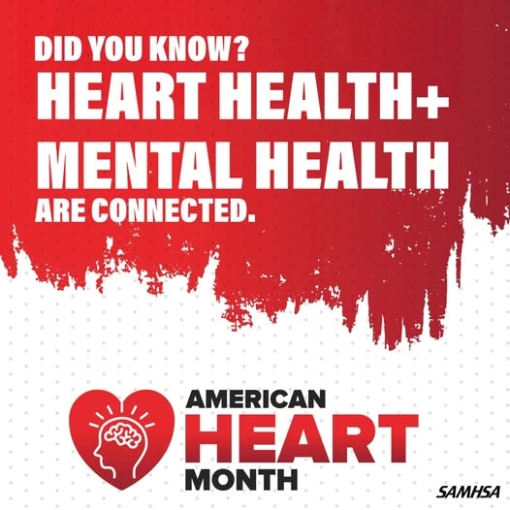About Us
What's Happening
For Good Heart Health, Focus on Mental Well-being
February marks American Heart Month, and while it’s natural to think of exercise and nutrition when it comes to heart health, there’s another critical component that often gets overlooked: mental health and stress management. While healthy hearts do depend upon how we eat and move, they’re also shaped by how we think, feel, and manage the everyday pressures of life.
Persistent stress can drive up blood pressure and increase inflammation in the arteries, both major contributors to heart disease. Stress can also push people toward unhealthy behaviors — like overeating, smoking, physical inactivity, or poor sleep — which further elevate heart disease risk.
So in honor of National Heart Month, here are some stress-busting strategies that will benefit both your cardiovascular and mental health:
- Move Your Body: Aim for at least 150 minutes of moderate physical activity per week — like brisk walking, cycling, or dancing. Movement not only strengthens your heart but also reduces stress and enhances mood.
- Practice Mindfulness & Relaxation: Techniques like deep breathing, meditation, or yoga can reduce stress hormones and help calm your nervous system. These practices are simple to fit into a daily routine and have been linked with lower blood pressure.
- Get Quality Sleep: Good sleep is foundational for both mental clarity and heart health. Most adults benefit from 7–9 hours of sleep a night. Prioritize sleep by creating a relaxing bedtime routine and reducing screen time before bed.
- Stay Connected: Strong social support and meaningful relationships can buffer stress, improve mood, and even influence physical health markers like blood pressure.
- Enjoy Activities You Love: Whether it’s reading, gardening, cooking, or a hobby that brings you joy, making time for things that relax and fulfill you can reduce stress and enhance overall well-being.

